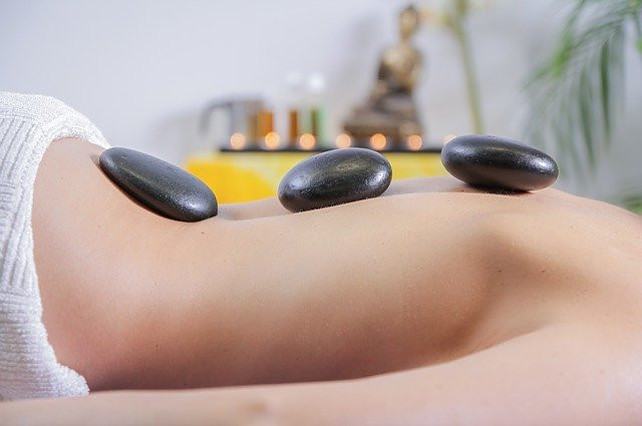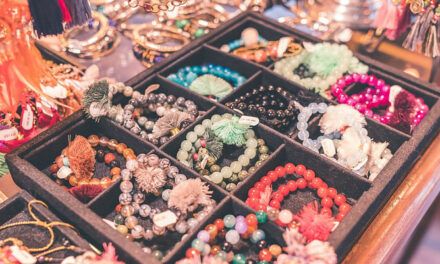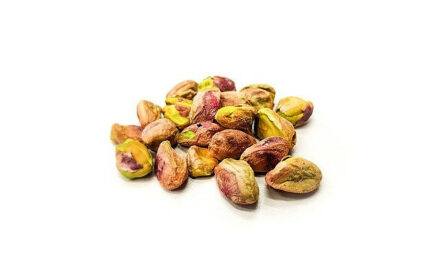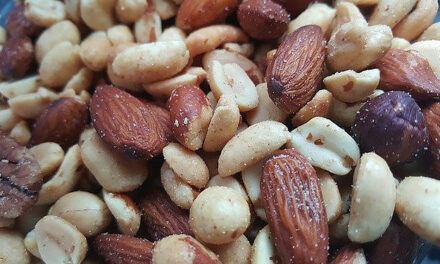In this article, we will be exploring the Traditional Chinese Medicine for Anxiety and Panic Attacks. Anxiety disorders, as a lot, remain the most common mental illnesses in America, with over 19 million adults, mostly women, diagnosed with these illnesses every year. Adolescents and children aren’t exempted, they can also develop an anxiety disorder.
Through various research conducted by research institutions and the National Institute of Mental Health (NIMH), Western treatments have been widely developed. These treatments often blend medication with certain types of psychotherapy, and they have helped many people with anxiety disorders.
A number of anti-anxiety medications, including benzodiazepines and beta-blockers, and certain antidepressants called selective serotonin reuptake inhibitors (SSRIs), have been found effective. But many people have begun to turn to Oriental medicine and herbal remedies because of the many side effects from the medications.
Unfortunately, psychotherapy which has been clinically proven to be effective in treating anxiety disorders, isn’t cost-effective and rarely covered by insurance companies.
Traditional Chinese medicine has been known to treat psychological illnesses at its root for the longest of time, although it is still at its infancy in the current medical model.
Since ancient times till now, highly sophisticated treatment methods have been developed and used in traditional Chinese medicine for the treatment of anxiety disorders.
By addressing the root cause of the body’s emotional imbalance and correcting them through acupuncture and gentle herbal therapies, traditional Chinese medicine treats anxiety disorders as well as other mental illnesses at its core.
What is Traditional Chinese Medicine?
Traditional Chinese Medicine is a 23-century old system of medicine founded in China, that aims to heal or prevent diseases by restoring or maintaining yin-yang balance.
China holds one of the world’s oldest medical systems dating back to at least 2,200 years, using Chinese herbal remedies and Acupuncture.
The “Yellow emperor’s inner classic” (huangdi neijing) is the earliest known written record of Chinese medicine and the theoretical concept on which Traditional Chinese Medicine is practicing today.
Yin-Yang
The essence of traditional Chinese medicine is to restore and maintain the balance of yin-yang, which flow through the human body, and the universe. Traditional Chinese healers believe a person to be healthy when there is harmony between these two forces, yin (passive) and yang (active). Whereas illness is the result of a breakdown in the balance of yin and yang.
Qi
The understanding of a person’s “Qi” is an important aspect of traditional Chinese medicine.
Qi refers to vital breath or life force. This life force flows like a river through invisible channels (Meridians) of the body.
Meridians
The Meridians are energy networks connecting the body’s systems, and its organs, down to the tissues and cells, atoms and even consciousness; there are 12 major Meridians connected to 12 major organs each.
This video explains the evolvement of TCM

Chinese approach
Restoring a person’s harmony may require the traditional Chinese healer using one or more of these remedies:
-
Acupuncture
Acupuncture involves the insertion of thin needles into specific therapeutic points along the meridians, to stimulate them and readjust the flow of life force (qi) and harmonize the body’s yin and yang.
-
Acupressure
Acupressure massage can be used in place of thin needles, to stimulate the acupuncture points.
-
Moxibustion
Moxibustion refers to when the herb Artemisia moxa shaped in small cones can also be burned on acupuncture points.

-
Chinese herbs
The herbal approach of Chinese treatment involves a variety of herbs, roots and tonics.
Before addressing how Chinese medicine treats anxiety and panic disorders, let’s define what those disorders are.
Common Anxiety Disorders and Their Symptoms
-
Generalized Anxiety Disorder (GAD)
Almost always expecting the worst even when there’s very little reason to anticipate it. Constant excessive, worrisome thoughts, and stress about daily routine life activities and events, for at least 6 months.
Physical symptoms include muscle tension, trembling, fatigue, nausea or headache.
Tip: Anxiety bracelets and gemstones can help you with anxiety to calm and relieve stress fast.
-
Panic Disorders
It is an intense fear that strikes repeatedly, and often without warning.
Physical symptoms include heart palpitations, dizziness, chest pain, shortness of breath, feelings of unreality, abnormal distress and fear of dying.
Tip: Some panic attacks are silent ones.
-
Post-Traumatic Stress Disorder
chronic symptoms that appear after experiencing or witnessing traumatic events such as natural or human-caused disasters, war, criminal assault, crashes or child abuse.
Physical symptoms include depression, nightmares, anger, flashbacks, irritable or distracted, numbing of emotions, and easily startled.
-
Phobias or fears
Social phobia and specific phobia are the two main types of phobia.
People with a specific phobia have an intense, paralyzing irrational fear of something that presents little or no actual threat. That fear can put a limitation on their lives because they will try to avoid certain objects or situation.
People with social phobia experience an immensely, disabling fear of embarrassment, scrutiny or humiliation in social situations, and this can lead to avoidance of various potentially meaningful and pleasurable activities.
Root Cause of Mental Health According to Chinese Medicine
According to traditional Chinese medicine, the body and the mind are inseparable. One fundamental idea in Traditional Chinese Medicine is that every organ is related to the qi of an emotion, and every disease is as a result of an imbalance in an organ and/or it’s meridians.
Because every organ is linked to a certain emotion, a physical disorder related to an organ is often caused by an imbalanced emotion. In the same way, an imbalanced organ can intensify the emotion experienced. It can turn into a ruthless cycle.
All emotions are not harmful and are necessary for daily life. Still, in Chinese medicine theory, emotions become a problem when they are repressed, expressed intensely, contained, often, out of context, or out of control.
How are Anxiety and Panic Attacks Diagnosed in Chinese Medicine?
TCM healers use touch, smell, pulse, voice vibrations and hearing diagnosis to figure out the root of an unbalanced qi, the related organs and affected meridians.

Anxiety
This emotion can stem from one of 4 sources.
1. Anxiety can be as a result of the Liver (wood element) imbalance.
Unresolved anger and irritability that has lingered for a long time can cause anxiety which may express itself as irritability, nervous tension and insomnia.
2. Anxiety-related to the Kidney and Bladder (organs associated with the water element)
In this case, traditional Chinese medicine accepts the adrenal glands to be same as kidneys. If the adrenals which regulate our stress response develop a problem that becomes chronic, it may cause anxiety.
When we experience rapid heart palpitations as a symptom of anxiety, it can be as a result of disharmony in the qi between the kidney and a blazing heart fire.
3. Anxiety can affect the balance in the Lungs and Large intestines (metal element).
When the qi in the lungs or it’s meridians are blocked because of anxiety, it can provoke irregular and shallow breathing, or holding of breath. Anxiety affects the large intestines by making it more prone to problems like Irritable bowel syndrome (IBS) and ulcerative colitis.
4. Excess worry can cause anxiety, and this can result in an imbalance in the Spleen and Stomach (earth element). This imbalance can lead to bloating and stomach swelling after eating.

Fear
Fear, according to the Chinese health approach, is the emotion associated with the water element.
The Kidneys and Bladder are organs linked to this emotion. It is a normal emotion but can become pathological if ignored.
There’s usually kidney issues when handling fear, this can be seen when experiencing unstable living conditions or change in life direction.
Often times, our kidneys struggle to hold qi when we experience intense fear, which may cause us to pee in our pants. Repeated episodes of intense fear often accompany the panic disorder, they strike frequently and without a warning.
Anger and Frustration
The emotion Anger is associated with the Liver and Gallbladder (wood element).
Long term feelings of repressed anger, feelings of frustration, resentment and irritability, can cause Gallbladder imbalance.
Aggravation, fury or rage emotions show that this energy is in excess, and this can progressively cause damage to the Liver if experienced consistently. At this point, it is not uncommon to feel dizziness and headaches.
Grief and Depression
Grief is an emotion related to the Lungs and Large intestines (metal element).
When we experience loss, it usually stimulates a cold feeling of being emptied energetically, as well as a difficult bowel movement.
If Grief goes unresolved after a long period of time, it can become chronic and lead to Lung qi deficiency. Consequently, this could cause interference with oxygen circulation and lung function.
Worry and Nervousness
Worry is an emotion that has to do with the Spleen and Stomach (earth element).
Excess worry, pensiveness and insecurity can weaken/reduce our ability to digest. Lack of trust and anxiety can make it difficult to digest food, and this can make us feel lethargic, tired and unable to concentrate; mental heaviness can come from mental stimulation.
Stubborn weight problems can also be as a result of a weak spleen.
Happiness and Joy
The emotion ‘Joy’ is of the Heart and Small intestines (fire element).
Experiencing joy and happiness nourishes the energy of the Heart and Small intestines, we’re mentally clear and can process experiences. On the other hand, when we’re deprived of joy and happiness, the Heart suffers, and we experience insomnia, feel mentally chaotic and stuck.
Excess scattered heart energy is an indication of mania or obsessive joy and can cause some serious mental-emotional disorders; there are symptoms of palpitations, insomnia and agitation. Yes, even good emotions can go out of balance.
The Difference of Treatment Approach of Traditional Chinese Medicine from Western Medical Practice
Western Medical Approach
From the Western medical point of view, treatment is primarily based upon diagnosis.
For example, an individual diagnosed with Generalized Anxiety Disorder, will typically be treated with psychotherapy or psychotropic medication or both.
The root cause of anxiety disorders in Western medicine is thought to be as a result of certain factors such as genetic make-up, traumatic or painful past experiences, or the chemical make-up of the brain (where altered levels of certain brain chemicals may cause anxiety).
Pharmacy and psychological therapy commonly recommended as a long term treatment for anxiety disorders may include:
- medication (e.g SSRIs, benzodiazepines),
- cognitive-behavioural therapy (CBT),
- behavioural therapy, and
- self-help.
Chinese Medical Approach
Traditional Chinese treatment is based on recognizing patterns of disharmony (e.g, Lung Qi deficiency as a result of Grief). In Traditional Chinese Medicine, every disease is categorized according to yin or
yang.
Over 2000 years old records of Chinese medical studies, have shown that diseases like anxiety are essentially an inability of the qi (life force) to contract and then return to the state of yin (rest and storage), consequently resulting symptoms of counter-flow in the ‘upper burner’.
Treatment in Chinese medicine is a holistic approach that aims to heal the entire being; body, mind and spirit, by restoring the natural balance and flow of the qi within the meridians.
Acupuncture is the primary treatment option since it has the ability to alter several biochemical and psychological conditions to achieve desired effects. Other treatment options that may be used are:
- Chinese herbs,
- meditation,
- yoga and
- nutritional counselling.

Tip: This Acupuncture Pen helps you manage pains better.
Western Medicine vs Chinese Medicine
Western medicine and treatment focus on treating the disease, which often alleviates the symptoms and then the cause (if know); but the medications usually leaves many side effects.
On the other hand, traditional Chinese medicine focuses on the entire well being. It addresses the root cause of anxiety disorders and panic attacks through holistic treatments that are natural with comparably little or no side effects.
Do Traditional Chinese Medicine and Treatment Work for Anxiety and Panic Attacks?
Several case studies and trials have shown that Chinese medicine treatment approach greatly improves and alleviate anxiety, panic attacks and depression symptoms from individuals.
Traditional Chinese Medicine approach has gained a lot of popularity and acceptance in recent years, healthcare centers such as John Hopkins Clinic, Mayo Clinic, and Cleveland Clinic, have already adopted Traditional Chinese Medicine practices such as herbal and acupuncture treatments.
A number of research have been done on acupuncture, herbs and other Chinese treatments in the West, and they’re quite promising.
For example,
- Acupuncture is now more widely accepted even in the West, as a treatment for various conditions.
Through the stimulation of nerves that calm the mind and put the body at ease over a period of time, acupuncture has produced positive results and improvements in the lives of individuals suffering from anxiety disorders.
- Several well respected Western clinics have also adopted a number of herbs used in Chinese medicine for the treatment of insomnia, menopause and arthritis.

Tip: Bracelets and gemstones can help you with anxiety to calm and relieve stress fast.
Is Traditional Chinese Medicine Safe?
Experts believe it to be safe (compared to Western medical approaches), as long as you’re going to someone who understands his practice and knows what he’s doing. For example, Tai chi, moxibustion, cupping and acupuncture pose no danger or side effects.
A little discomfort may be felt during acupuncture when the tiny needles are inserted; and when it is removed there may be a little soreness especially after repeated acupuncture.
Since Chinese herbs aren’t FDA processed like other drugs, it’s a little tricky though. There’s not a lot of research on them, which makes it hard to tell exactly what’s in them. Plus, they may interact with other medications and cause side effects as well. It is, therefore, necessary to seek someone who knows his practice well, and seek your doctor’s counsel first.
Traditional Chinese Medicine and Treatment Options for Anxiety and Panic Attacks
Treatment pattern in Traditional Chinese Medicine is tailored uniquely from the diagnosis and symptoms of illness or the root cause of imbalance in an individual. A combination of one or more treatments is then recommended for a period of time.
Chinese treatment options for anxiety and panic attacks include the below.
-
Acupuncture
Anxiety and panic attacks are unique to every individual, and so is acupuncture therapy. By stimulating specific therapeutic points on or near the surface of the skin, endorphins and serotonin ( mood-elevating and calming neurotransmitters) are released. Biochemical and Psychological conditions can be altered to achieve the desired effect.
Tip: Did you know Biofeedback training can help you managing anxiety and panic attacks well too.
-
Chinese herbs
Certain herbs, decoction and tonics are recommended to help in calming the mind and restoring balance to the body’s life force. The use of Chinese herbs in the treatment of anxiety and panic attacks is gradually gaining acceptance in the West, mainly because of its non-toxic nature.

-
Mind-Body exercise
The right kind of exercise and calming activities like Tai chi, qi gong, meditation, yoga, and Energy therapy, help regulate endocrine and circulatory systems that are unbalanced in an everyday anxiety experience.
-
Nutritional counselling
Supplements and foods are often involved in how we respond to anxiety and stress.
Certain foods that contain stimulants such as caffeine, spicy foods, sugar and nicotine can worsen anxiety. On the other hand, certain complex carbohydrates such as quinoa or brown rice help to relax the nervous system.
Tip: Here are the best coffee creamers. They are not the same as coffee cream.
Body, Mind vs Spirit
In Traditional Chinese Medicine, body, mind and spirit are considered to be completely interactive and interdependent. In other words, what affects one of them, affects all.
Body
Body treatment consists of different natural techniques that promote relaxation and well being.
Here are the examples for treating your body in Chinese medicine.
- Acupuncture
- Nutritional counselling
- Chinese herbs
Tip: We have previously noted home remedies for type 2 diabetes.
Mind
Mind treatment includes an intense form of treatment for thoughts and emotions. Psychotherapy can also be combined with acupuncture to promote mental health.
Here are the examples for treating your mind in Chinese medicine.
- Pilates
- Meditation
- Yoga
- Art and Music therapy
Spirit
Treatment for your spirit strives for spiritual satisfaction, and to gain wisdom of one’s inner self.
For example,
- Meditation
- Energy healing or Reiki
- Prayers, and
- Psychotherapy
Tip: This article explains the importance of spirituality in successfully managing diabetes.
Chinese Herbs for Anxiety and Panic Attacks
Since treatment options are tailored uniquely to the symptoms and diagnosis of an individual’s cause of imbalance or illness, Chinese herbs are also recommended in the same manner. There are several decoctions of Chinese herbs for different symptoms of anxiety and panic attacks in different individuals.
Here are some of the examples.
1. Symptom 1
Anxiety coupled with depression, hopelessness and sadness; coughing or wheezing or a pressure sensation in the chest and/or throat.
Herbs: She Jie Xing Chong Tang, with Pingjia Tang, with Baihe Huashi Tang.
2. Symptom 2
Inflammatory bowel syndrome (IBS), Leaky Gut Syndrome, Food allergies, Small intestinal bacterial overgrowth (SIBO), etc. that affects brain chemistry and leads to mood swings and anxiety.
Herbs: Guizhi Tang or Guizhi Jia Longgu Muli Tang, plus Lung, Heart or Kidney Yin tonics. (In case of an outburst of localized ‘fire’ symptoms, Huanglian Ejiao Tang is combined).
3. Symptom 3
Panic attacks, adrenal stress syndrome, trauma, spasmodic coughing, crying, insomnia, unable to control emotions.
Herbs: Suanzaoren Tang plus other herbs that open the ‘Heart Orifice’.
4. Symptom 4
Anxiety/insomnia with general exhaustion and cold symptoms, burnout syndrome, pale tongue with possible toothmarks.
Herbs: Qianyang Dan, plus Heart Yin tonic herbs.
5. Symptom 5
Stress, pressure sensation in the heart region, shortness of breath, high blood pressure, acid reflux, a tendency to unstable blood glucose, high cholesterol.
Herbs: Xuanfu Daizhe Tang plus Denshen Yin plus Shengmai San.
Tip: Amino acids can help you fight with low mood better.
Note – The above is not medicinal recommendations for those symptoms. I provide here them for information purpose only to explain the Chinese medical approach better. Please contact your doctor, if you experience any of the above symptoms. According to Western Medical practice, some of the above symptoms are considered medical emergencies.
Conclusion
Traditional Chinese medicine is a holistic treatment approach to anxiety and panic attacks, which have shown great results and promises. It has become a widely accepted alternative approach to the treatment of psychological illnesses, especially when conventional therapies fail to show results of improvement or when the symptoms are severe.
Again, many turn to Traditional Chinese Medicine to escape the many side effects and addictive nature of some conventional medication. But oftentimes, psychotherapy is combined with Traditional Chinese Medicine mind-body treatments, and they have produced various positive results.
After all, it is important to check with your doctor before adopting acupuncture therapy, herbal remedies or any of the traditional Chinese medicine treatments to your lifestyle.









0 Comments